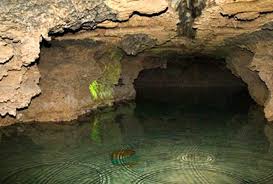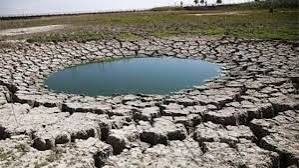Groundwater management

Groundwater management is an important issue that requires appropriate approaches and strategies to preserve and sustainably exploit these resources. Some of the important measures include careful monitoring of underground water resources, implementation of water consumption optimization systems, establishment of legal limits for the use of resources, and upgrading of water management technologies. These approaches are designed to maintain a balance between human use and conservation of wildlife and underground biotopes.
Management of underground water in the country’s economy
Groundwater management is very important in the country’s economy. Groundwater is used as an important source of fresh water in many countries and affects the economy in different ways. These effects include:
-
Agricultural water supply: Groundwater is used to irrigate fields and agriculture, which form a major part of the economy of countries with a strong agricultural structure.
-
Underground water and industry: Some industries depend on underground water for their water supply. Among these industries, we can mention electricity production, food industry and heavy industry.
-
Urban water management: underground water is exploited to meet the water needs of cities. This includes drinking water and water for various uses in cities.
-
Effect on the environment: Overexploitation of underground water can have negative effects on the environment, including the reduction of the underground water level and the reduction of surface water flows.
-
Investment and development: Optimal use of underground water resources can help economic growth and investment in various fields, including the development of water infrastructure and agriculture.
As a result, the correct and sustainable management of underground water is very important in the economy of countries and requires effective approaches and policies to preserve and exploit these resources.

The importance of groundwater
Groundwater is very important for people and the environment. Here are several points of their importance:
-
Stable and fresh water source: Groundwater serves as a stable and stable source of fresh water. These water sources, which are located in underground layers, usually have high quality and less pollution than surface water.
-
Agricultural water supply: Groundwater is very vital for irrigation of fields and water supply for agriculture. These water sources allow farmers to irrigate their fields in dry seasons without the need for seasonal rains and thus continue producing agricultural products.
-
Drinking water supply: Many urban and rural areas use underground water to supply drinking water. These water sources play a very important role as one of the main sources of drinking water in many regions of the world.
-
Preservation of living organisms: Groundwater plays a very important role in preserving living organisms and the ecology of regions. These waters serve as sources of water supply for pastures, wetlands, and wildlife and help maintain biodiversity.
-
Industrial use: Groundwater is used to meet industrial needs and produce energy in some industries. These waters act as a stable and distributed source of water for industrial systems.
-
Preserving the balance of the ecosystem: Groundwater helps to preserve the environment and climate stability by maintaining the balance of the ecosystem and maintaining different ecosystems in different regions.
In general, groundwater is recognized as a vital natural resource for people and the environment and requires sustainable management and conservation of these resources to preserve them for future generations.

What problems will arise if groundwater is not managed?
Failure to properly manage groundwater can lead to serious and complex problems, including the following:
-
Decreasing the underground water level: excessive and incorrect use of underground water can lead to a decrease in the underground water level. This can lead to land subsidence (whitening) in some areas, which causes serious problems for construction and people’s daily life.
-
Reduction of surface water flows: Failure to manage underground water can lead to reduction of surface water flows, such as rivers and lakes. This can lead to a decrease in the supply of drinking water resources and agricultural irrigation in the required areas.
-
Decreased water quality: Pre-abstraction of underground water can lead to a decrease in water quality in these sources. This decrease in quality may include an increase in the concentration of harmful organic and chemical substances or water salinization, which can lead to a decrease in the health of people and aquatic ecology.
-
Effects on the environment: Over-extraction of underground water can lead to environmental destruction and desertification (turning cultivated lands into deserts). This can have negative effects on the biodiversity and ecological health of the regions.
-
Economic effects: Failure to manage underground water can lead to a reduction in the supply of water resources for agriculture, industry and cities, which can have serious negative effects on the economy of the region or the country.
Therefore, proper management of groundwater is of great importance to ensure the preservation of these important water resources and their sustainable use for various human and environmental needs.
